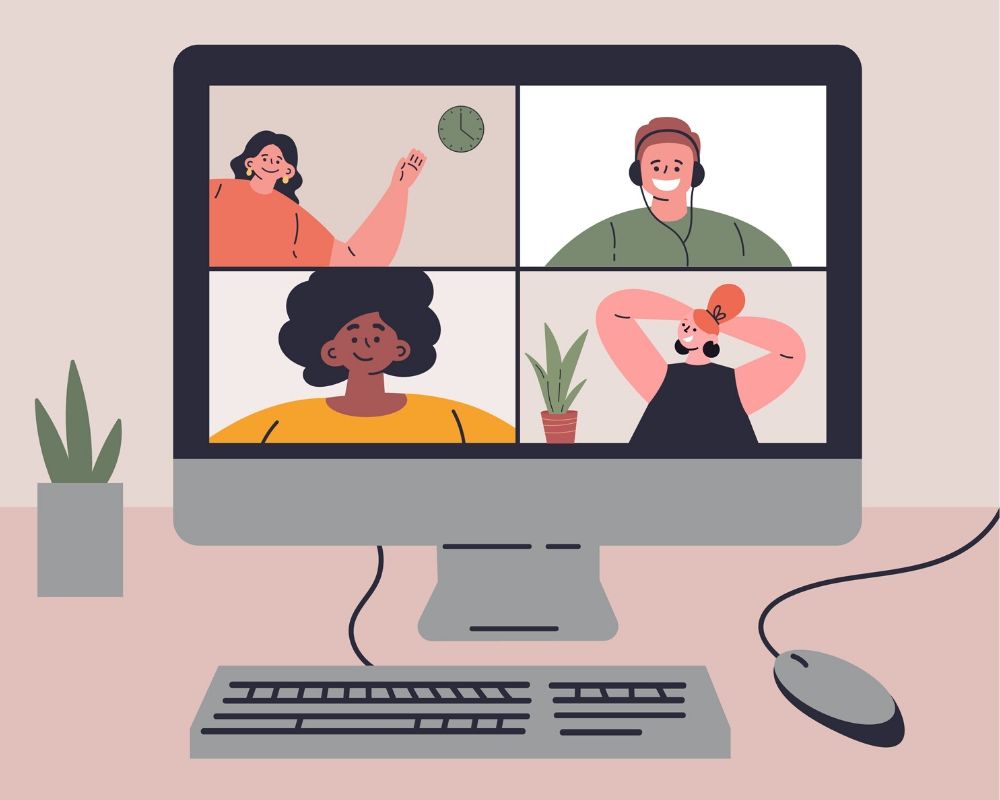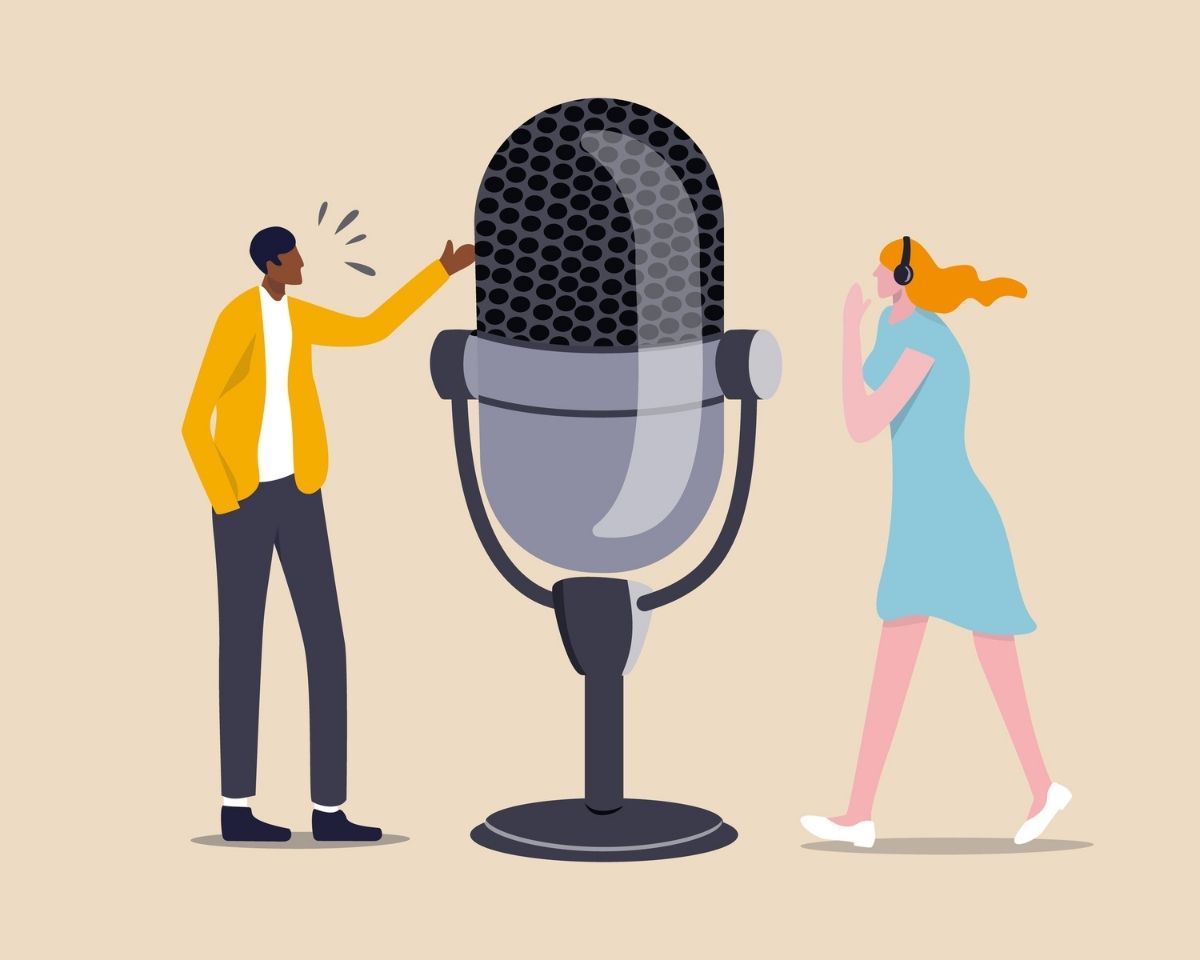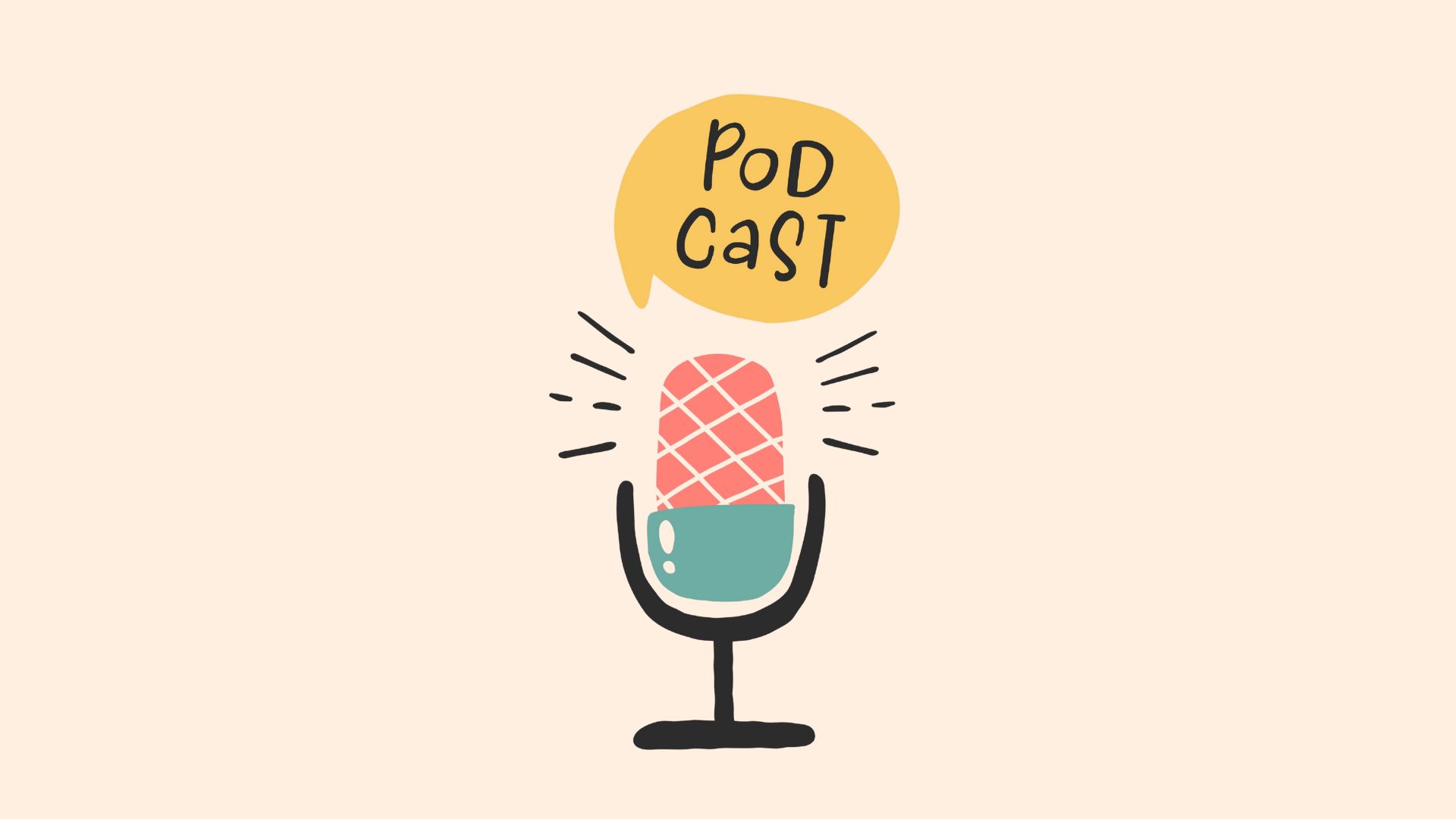Why shutting up in your podcast interviews isn’t a bad thing
If you want to get the best possible audio in your podcast interviews it’s important to use silence well.
It might seem like a weird concept when a podcast is all about speaking. But silence can help you not only get better responses from your guests but also give you the best audio to work with in your edit.
Why silence is important when your guest is speaking
Shutting up while your guest is answering a question might seem super obvious but one of the most common mistakes I see new podcasters make is ‘over-validating’ when their guest is speaking.
By that I mean, every time their guest says something they punctuate it with “mmm hmmm,” “ok,” “yes” or a million other validating words.
This comes from a really nice place because they’re trying to make their guest feel comfortable and reassure them that what they’re saying is interesting.
But listening to someone speak while someone else is saying “mmm-hmm” every 2 seconds is actually really annoying (and when you listen to yourself back in the edit you’ll realise that real quick).
When your guest is answering a question you want to validate by getting good at the ‘silent nod.’ That’s why using video when you’re recording an interview is so important.
You want the person you’re speaking to, to be able to see you so you can show them you’re interested in what they’re saying without muddying the chat with unnecessary noises.
Why silence is important when you’re asking questions
When you’re trying to make a guest feel comfortable there can be a tendency to jump in quickly after they’ve finished and move on to your next question. And while it’s good to sound in control, you want to make sure you’re not cutting them off.
Sometimes it will be obvious when your guest is finished but sometimes it’s not.
So, if you leave a tiny bit of silence before you ask your next question you’ll give them the opportunity to get everything out, ensuring you don’t miss any gold.
If a guest has something more to say but an interviewer has already moved on it’s rare they’ll interrupt to say “I wasn’t finished.”
So you want to make sure you’ve left all the space you need (without going silent for 15 minutes) so you know everything they want to say is down on tape.
Why silence is important if you want to sound in control
One of the biggest mistakes new podcasters make is they try and fill every available second of silence by talking non-stop.
When you’re hosting a podcast you want to sound in control and nothing achieves that more than slowing down and being comfortable with a second or two of silence.
This approach will also help put your guest at ease because they won’t feel like you’re more nervous than they are and they’ll also know they can take time to answer a question or think about their response.
It’s a good idea to tell them that before you start so they know you can edit any long pauses or silences out later.
Using silence effectively isn’t about letting things go quiet for 5 minutes so everyone feels awkward, it’s about understanding that not every millisecond of audio space needs to be filled.
If you want to create a really enjoyable, relaxed show that’s easy to listen to, embracing silence is a great way to do it.
Got any other great ideas for how to promote your show? Write them in the comments below!
Want to start your own podcast but need a little help? Download my “How To Start A Podcast” guide or sign up for my online podcasting course, PodSchool.











One Response
Really amazing tip, so easy to miss but really does make a great impact